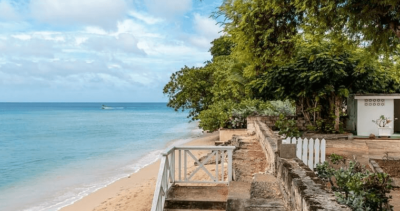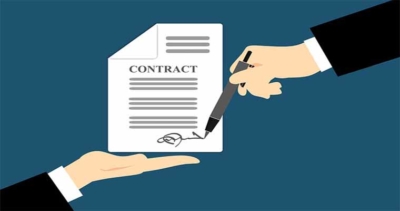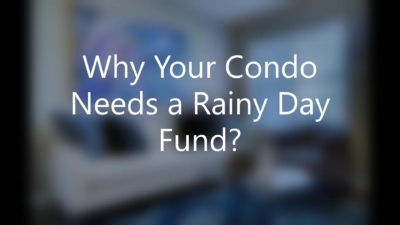SECTION 14: TRANSFERRING MONEY INTO PHUKET
Find your new Phuket Property with Thai Residential
Transferring Money into Phuket
Any foreigner planning to purchase a property in Phuket must follow the correct procedures for transferring money into Thailand. If the proper steps are not taken it may prove impossible to repatriate the money when it comes time to sell your Phuket property, and for it to leave Thailand.
If more than US$ 50,000 is being remitted for the purchase of a Phuket condominium, a Foreign Exchange Transaction Form (FETF) must be requested from the receiving bank.
If funds are being remitted for the purchase of a villa, for a long term lease on a property, or to provide share capital for a Thai company, the FETF is not a statutory requirement. As long as all evidence of the original transaction can be presented and is clear, and there is proof that all requisite taxes have paid, the funds can be sent out of Thailand at a later date.
This process does take longer than it would with an FETF, so even if you are buying a villa in Phuket, it may be worth requesting one from your receiving bank/developer even though it is not required.
The FETF Required for a Phuket Condo Purchase
The Condominium Act states that any non-resident of Thailand who wishes to buy a condominium, must transfer the requisite funds from overseas specifically for that purpose. Regardless of the buyer’s country of origin, the funds must be sent in a foreign currency, to be converted into Thai Baht (THB) by the receiving bank upon arrival in the country.
In order to register a new condominium purchase with the Phuket Land Department, the FETF documentation must be presented to prove that the full purchase price was transferred into the Kingdom from abroad. (The instruction on the bank transaction form should also state that the payment is for the sole purpose of purchasing a condominium.) From an estate planning perspective, it is a good idea to always have multiple names (including children or grandchildren) added to the original telegraphic transfer, so they may be included on the FETF.
If the only way to arrange payment is by transferring funds to the developer directly, then the developer must arrange the FETF forms on behalf of the foreign buyer.
Taking the money out of Phuket at a later date is relatively straight forward, provided all the supporting documents can be presented. This is especially important if the funds have been borrowed from an overseas financial institution and/or there is an overseas mortgage on the condo.
Please also note that no repatriation of money will be possible until any income/capital gains taxes have been settled on the sale of the condominium. The FETF must also be presented to the tax authorities as proof of the legitimate ownership.
Whether ultimately remitting the funds back to a private account, or to repay a bank loan, the Foreign Exchange Transaction Form is an absolute requirement. By ensuring multiple names are on the FETF, not only is inheritance made easier, but funds can also be returned to the account of an heir. This document should be kept in a safe place at all times.
Again, it is wise to consult a good Thai lawyer throughout this process.
Buying and Leasing Property in Phuket Articles
Buying Property in Phuket, Thailand – Houses, Villas and Condominiums in the Bang Tao Beach Area
Bang Tao is one of Phuket's “up-and-coming” areas, with a beautiful beach and plenty of attractions for both tourists and residents. It is easy to see why it is becoming one of Phuket's most popular areas and a great place to invest in property.
Phuket Long Term Rental Guide 2025
Phuket long term rentals are a popular choice for expats, retirees, and digital nomads. This guide explains the rental process, contract basics, area highlights, and what to expect from monthly costs.
Phuket Condo Inheritance & Succession Planning
Foreigners can inherit a condominium in Phuket, but only under specific legal conditions. This guide explains how to plan succession properly — from quota rules to leasehold clauses, Thai wills, and long-term ownership protection.
Phuket Illegal Land Titles – What Buyers Need to Know
Phuket’s stunning landscapes hide a complicated legal history, and not all land is as clean as it looks. Learn the dangers of illegal land titles, and how to avoid the most common scams when in Phuket.
Phuket EIA (Environmental Impact Assessment) | Guide
Thailand’s Environmental Impact Assessment (EIA) plays a major role in what can and cannot be built in Phuket. Learn how EIA laws affect coastal, hillside, and high-density developments — and how to protect your investment.
Reputable Developers in Phuket – What to Look For
Choosing a reputable developer in Phuket is essential to avoid risks. This guide explains how to check credibility, verify permits, and understand the signs of a trustworthy company.
Reservation Deposit Risks in Phuket Property
Reservation deposits can be risky if agreements are unclear. This guide explains 5 rules every buyer should know to reduce risks in Phuket property deals.
Thai Company Ownership in Phuket Property: Rules and Risks
Thai company ownership in Phuket can be risky if the company is only a shell. This guide explains the rules, risks, and need for a genuine, tax-paying business.
What Is Due Diligence When Buying Property in Phuket?
Thinking of buying property in Phuket? Learn why due diligence is the most important step before any purchase — and what to look out for to avoid costly mistakes.
Risks When Buying Phuket Property – What to Watch For
The key risks when thinking about Phuket property ownership and how to reduce them with document checks, developer due diligence, legal oversight, and safer ownership structures.
Off Plan Risks in Phuket Property – What Buyers Should Know
The key off plan risks in Phuket include project delays, weak developers, unclear contracts, and missing permits. Here’s how to reduce those risks.
Buying a Condominium in Phuket – What Is the Condominium Juristic Person (CJP)
The Condominium Juristic Person (CJP) is essential to the successful management of any condo building in Phuket. Here's what buyers and investors need to know about its role.
Benefits of Off Plan in Phuket Property – What Buyers Should Know
The benefits of off plan in Phuket include lower pricing, flexible payment plans, and access to modern facilities. Here’s why it appeals to buyers.
Rental Demand in Phuket Property – Yields and Key Factors
Rental demand in Phuket varies by location, season, and property type. This guide explains how yields work, what drives rental demand, and the legal and market factors that affect returns.
The Pitfalls of Buying a Leasehold Condominium in Phuket
Buying a leasehold condo in Phuket may seem convenient, but foreign buyers must be aware of the risks. Learn how to avoid the most common pitfalls before you invest.
Phuket Common Area Fees: What Condo Owners Need to Know
Phuket common area fees, often called CAM fees, are essential for maintaining shared spaces in condominiums. This guide explains what they cover, how they are calculated, and why they matter to owners.
The Importance of Sound Legal Advice When Buying Real Estate in Phuket, Thailand
Before purchasing property in Phuket, understand why hiring a qualified, independent lawyer is essential to safeguard your rights, navigate Thai regulations, and avoid hidden risks.
Holding a Leasehold Condo in a Thai Company – Risks and Legal Framework
Leasehold condos in Thai companies remain a complex area of Phuket property law. This guide explains the risks, how compliance works, and why nominee structures are being scrutinised.
Phuket Condo Sinking Fund – Explained
A Phuket condo sinking fund is collected from owners to cover future repairs and improvements. Understanding how it’s managed helps protect the long-term condition of the building.
Carrying Out the Necessary Due Diligence When Buying Real Estate in Phuket
Avoid costly mistakes when buying real estate in Phuket. This essential guide walks you through zoning laws, title deeds, legal risks, and due diligence essentials.
Phuket Foreign Land Ownership Laws – A Global Comparison
Many buyers assume Thailand is the only country restricting foreign land ownership - but that’s far from true. Here’s how Phuket compares to the rest of the world.
Benefits of Buying a Condo in Phuket: Lifestyle and Investment Advantages
Buying a condominium in Phuket offers lifestyle ease, legal ownership options, and strong rental yields. Here’s why it’s one of the smartest ways to invest on the island.
The Different Types of Property for Sale in Phuket – A Guide for Buyers
Explore Phuket real estate options - from townhouses to branded villas, condo units, and prime sea-view land—understanding what really suits your investment goals.
Understanding Phuket’s Condominium Act: What Investors Need to Know
If you're investing in a condo in Phuket, understanding the Condominium Act is essential. Here's what foreign buyers need to know about legal protections, ownership rights, and key regulations.
Buying a Condominium in Phuket: Condominiums Explained
Buying a condo in Phuket is one of the safest ways for foreigners to own property in Thailand. Here’s what you need to know about freehold, leasehold, and ownership rules.



























Social Contact